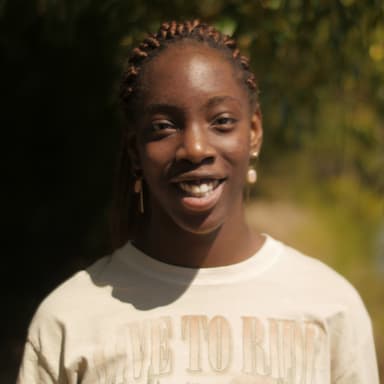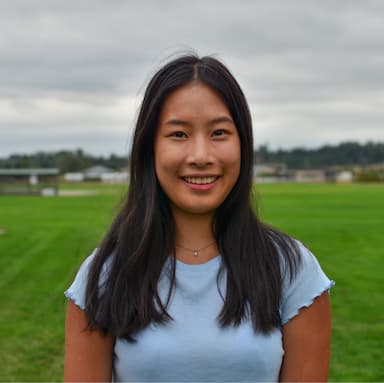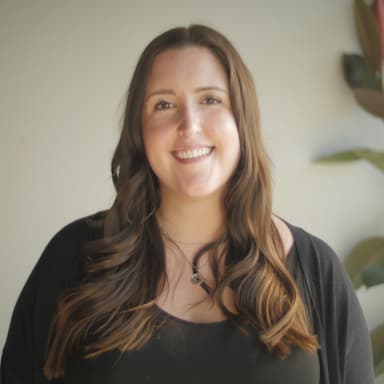It’s important for youth to take initiative because it inspires, and it’s like, if they can do it, so can I.
Any small idea can turn into a larger movement. You may notice a gap or opportunity to boost mental well-being in your school or community and wonder what you can do to help meet the need you have identified. In this toolkit video, Katherine turned a school project into an after-school club where other students could come to get help with homework and also take part in music activities.
An opportunity you may not have previously considered might be the doorway to something completely new. You may have personal experience with friends who have shared their struggles with mental health and may feel you want to do something about it. Even if you have never done something like this before, you can still make a difference. Despite being worried she did not have enough experience, Mboule applied to be part of a provincial mental health advocacy project and was able to help make key decisions as part of the team.
If your school or community would like to host a larger event to reduce stigma associated with mental health, hosting a summit may be a good way to bring your community together to promote conversations about mental health. Laurie was involved in her community’s annual youth-led Balancing Our Minds events that aimed to reduce stigma around mental health.
Starting something new is not always necessary. There may already be some great initiatives underway in your school community. Getting involved with existing events, clubs or initiatives is a great way to get started in making a difference. You may meet some new people and build shared connections!
Actionable Insights
Talk to people who are involved in initiatives you’re interested in. Look for opportunities and see if there’s a way for you to get involved. You can discuss with your friends or keep a lookout on social media or on your school or community bulletin boards.
Talk to a trusted adult about what you want to get involved in, and how you can take steps to get involved. They may be able to keep an eye out for new opportunities for you or connect you to resources that could be helpful.
When trying to get something going, there can be opportunities for funding and resources available in your community. Start thinking about a budget and how you can request support from your community.
Tools & Resources
- How to Plan a Youth Summit, through Balancing Our Minds [PDF]
- Sample Letter for Support for any event or initiative, through Balancing Our Minds [PDF]

Mboule (she/her)
Prince GeorgeMboule (she/her) is a Grade 12 high school student and is from the traditional territory of the Lheidli T'enneh (clayt-clay den-ay) First Nation and their traditional land, also known as Prince George, BC. She started her advocacy journey when she decided to take a leap of faith and join the Balancing Our Minds Toolkit youth advisory committee in hopes that she could expand her knowledge on how to become a better advocate and also inspire others to start their own advocacy journeys. Mboule is already moving forward with her own journey, and has decided to volunteer as a TeleFriend with Integrative Touch, a non-profit organization based in Arizona.

Katherine (she/her)
LangleyKatherine (she/her) is a Grade 12 student from Langley, BC. She started advocating for mental health in her school when she organized an after-school program called Tutor&Tunes as part of her Grade 11 capstone project, exploring the impacts of music on mental health. The club provided a space where students could go after a stressful day at school to receive homework support from their peers as well as participate in wellness workshops inspired by music therapy. Katherine hopes to encourage others that getting involved with a mental health school club can be as simple as inviting your friends to have a jam session together!

Laurie (she/her)
AbbotsfordLaurie (she/her) is a recent graduate of the University of British Columbia's Masters of Health Administration program and resides on unceded Stó:lō (staw-low) territory in the Fraser Valley. She uses her personal story to provide hope and tools for wellness to others through social media (@laurieanned), the Bold Beautiful Borderline podcast, and The Super Feelers Club, a virtual low barrier peer support group program for individuals who live with intense emotions. Laurie uses her passion and life experiences to improve the health system and was a host of the Balancing Our Minds Community Summit in Surrey from 2017 to 2019.